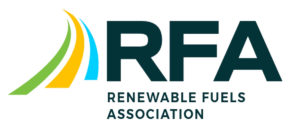Under the biofuels plan announced Friday, the Environmental Protection Agency will propose and request public comment on expanding biofuel requirements beginning in 2020 and will seek comment on actions to ensure that more than 15 billion gallons of conventional ethanol be blended into the nation’s fuel supply beginning in 2020, and that the volume obligation for biomass-based diesel is met. This will include accounting for relief expected to be provided for small refineries.
Industry organizations have reacted positively to the plan but there are concerns that it does not account for the millions of gallons already lost under the SREs that have already been granted.
 Renewable Fuels Association President and CEO Geoff Cooper says the plan is “a crucial step toward repairing the damage done by EPA’s small refinery waivers and re-establishes the RFS as a driver of growth in the production and use of low carbon renewable fuels.”
Renewable Fuels Association President and CEO Geoff Cooper says the plan is “a crucial step toward repairing the damage done by EPA’s small refinery waivers and re-establishes the RFS as a driver of growth in the production and use of low carbon renewable fuels.”
“It is important to remember that today’s announcement marks the beginning—not the end—of an EPA regulatory process, and much work remains to be done. We will continue to diligently work with EPA and the administration to ensure this action is finalized in a way that guarantees a 15-billion-gallon requirement in 2020 truly is a 15-billion-gallon requirement.”
Interview with RFA CEO Geoff Cooper on administration biofuels plan American Coalition for Ethanol (ACE) CEO Brian Jennings says it’s good EPA will account for waivers beginning in 2020 but bad that they are “doing nothing to reallocate the more than 4 billion gallons of RFS blending obligations waived for refineries from the 2016, 2017 and 2018 compliance years.”
American Coalition for Ethanol (ACE) CEO Brian Jennings says it’s good EPA will account for waivers beginning in 2020 but bad that they are “doing nothing to reallocate the more than 4 billion gallons of RFS blending obligations waived for refineries from the 2016, 2017 and 2018 compliance years.”
“Because this plan is short on details and the final outcome is dependent upon a new rulemaking process, it’s unrealistic and premature for me to conclusively praise it at this stage.”
Interview with ACE CEO Brian Jennings on administration biofuels plan National Biodiesel Board Vice President of Federal Affairs Kurt Kovarik says, “Proper accounting of the exemptions is vital to ensure that the annual RFS volumes send a reliable signal to biodiesel producers, who are making investments and plans for the future.”
National Biodiesel Board Vice President of Federal Affairs Kurt Kovarik says, “Proper accounting of the exemptions is vital to ensure that the annual RFS volumes send a reliable signal to biodiesel producers, who are making investments and plans for the future.”
“The biodiesel industry relies on the RFS program to support continued growth and market development. While today’s proposal addresses the lost gallons from future exemptions, it does not provide for additional volumes of biomass-based diesel in 2021. We will continue to press EPA to send signals for future growth for biodiesel producers and soybean farmers.
Interview with NBB VP Kurt Kovarik on administration biofuels plan (6:48)

